Academia Round Table
WSIS and Academia
Session 397
The semi-structured open roundtable will include stakeholders from academia and WSIS to discuss opportunities for collaboration and mutual support on ICTs and the sciences (between academic stakeholders, ITU, and the WSIS forum). This will, for example, include research partnerships, innovation-sharing, critical debate, networks and collaboration, and student involvement. Following the session, key points will feed into the creation of a pathway for academic involvement.
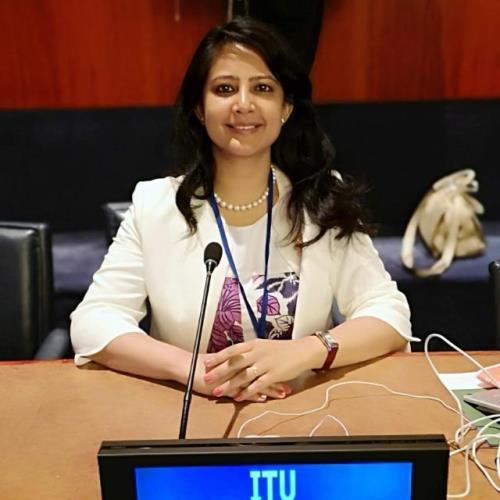
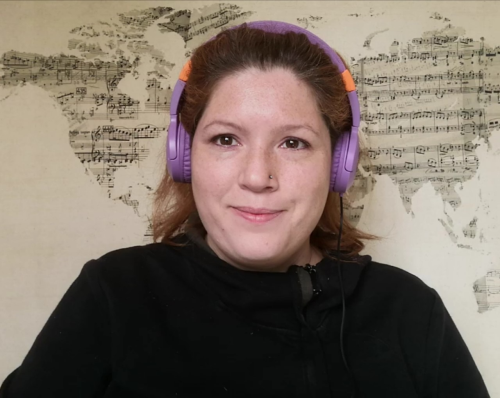
Suay is an interdisciplinary digital sociologist with a focus on digital activism and digital political empowerment. Her Marie Skłodowska-Curie research project DIGI-EMP at the University of Trento's School of International Studies looks at international experiences of digital political empowerment in crowdsourcing initiatives on climate change. Her publication record includes articles in Information, Communication & Society, Journal of Digital Social Research, First Monday, and International Journal of Communication.
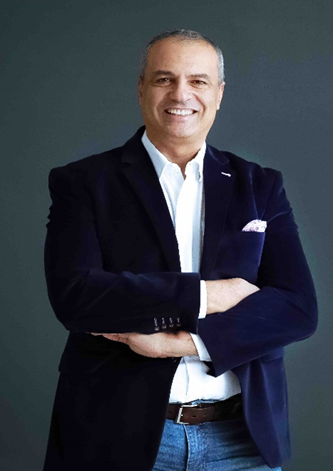.png?maxwidth=500)
Adel Ben Youssef is Doctor of and Professor of Economics. He is a lecturer at the Université Côte d'Azur and a member of the CNRS research laboratory (GREDEG - CNR UMR 7321). He teaches at the Higher Institute of Economics and Management. He is qualified to direct research, qualified by the CNU for the position of University Professor. Adel Ben Youssef has taught in many schools and universities in several countries: Université Paris Sud, EDHEC Business School, Supélec Paris, Ecole Centrale de Paris, Cairo University, Mundiapolis Casablanca (Morocco), EDI (Algiers), ESSEC Tunis, ESC Tunis, IAE de Gafsa, International School of Ha-Noi (Viet-Nam), Wuhan University (China) and Pristina University (Kosovo).
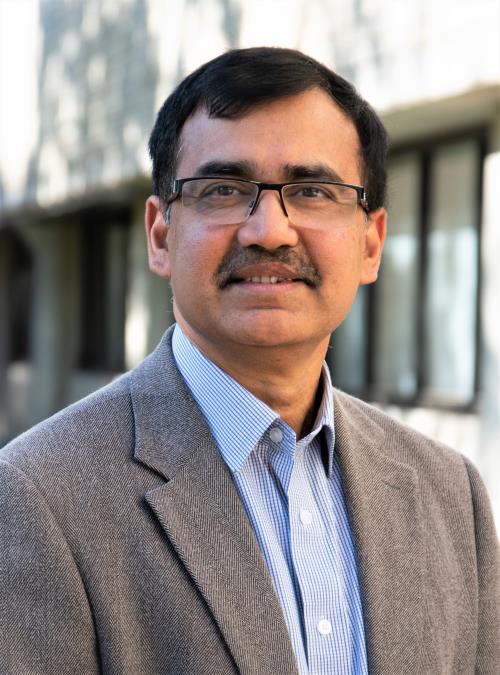
Dr. Ahmed Imran is an Information Systems researcher at the University of Canberra and leads the Research cluster of Digital Inequality and Social Change (RC-disc). Ahmed’s research interests include the strategic use of IT, eGovernment, ICT4D and the socio-cultural impact of ICT and organizational transformation impacted by ICT. Ahmed has garnered over a decade of academic experience in two of Australia’s leading Universities (ANU and UNSW) before moving to UC and has published in top-tier journals in the field. His transition to academia was motivated by passion and personal experiences in developing countries, which became invaluable for research and understanding and providing a rich insight into the socio-cultural context.
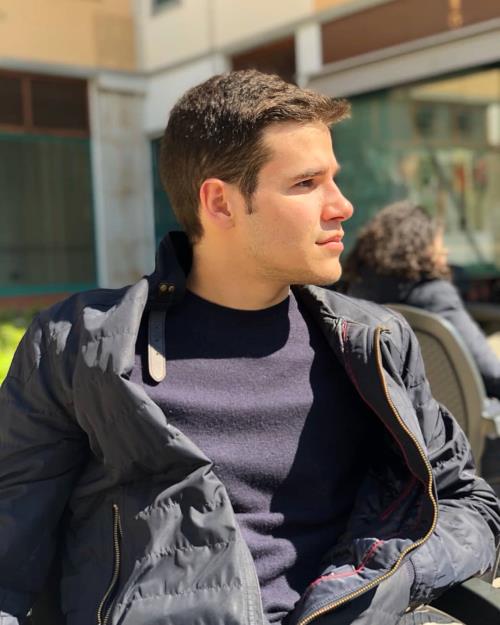
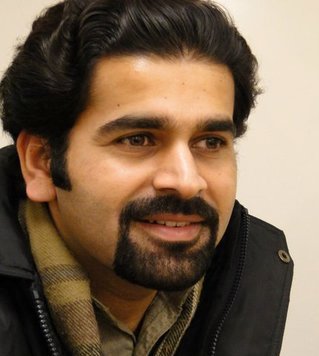
Ali Husnain is a Lecturer in Computer Science at COMSATS University Islamabad; he is contributing to hybrid and virtual learning based educational scenarios since year 2013. He studied Informatics (e-government) at Örebro University and Computer Science at COMSATS University Islamabad. His research interest focuses on Information systems in general and ICTs’ sustainability in specific. He is a passionate advocate of Sustainability, SDGs, sustainable e-governments, ICT4D, Circularity, Smart cities, equitable and inclusive use of technologies like ICTs, IoTs, AI, and Big data for resilient systems. He has participated in numerous events related to SDGs. He is a member of many global sustainability initiatives also he is an associate member of DESC , his article about sustainability of e-services can be accessed via Sustainable Development: Concepts, Methodologies, Tools, and Applications, more about him can be accessed via Ali Husnain

Dr. Dibyendu Maiti is Executive Director, Centre for Development Economics and Professor of Economics at the Delhi School of Economics. Prior to this, he worked at the University of the South Pacific, Institute of Economic Growth Delhi, Centre for Studies in Social Sciences Calcutta and held various research positions at University of Manchester, University of Nottingham, Max Planck Institutive of Economics (Jena), Norwegian Institute of International Affairs (Olso). ICSSR-JSPS fellowship. He specialises on international trade and development macroeconomics with a bit of focus on ICTs, and publishes articles including in Journal of Development Economics, Social Research Indicators, Journal of Productivity Analysis, Labour Economics, Economic Modelling, International Review of Economics and Finance, Cambridge Journal of Economics, American Behavioural Scientists etc. He is an associate editor of Progress in Development Studies (Sage). He received IDRC Young India Social Sciences Award, 2010 and Global Development Network Award, 2009. Recently, we published a book on Digitalisation and Development: India and Beyond.

Andrea is a Senior System Analyst in the ITU Radiocommunication Sector. His current duties encompass software and radio communication engineering activities finalized to the design and implementation of software solutions and systems focused on the application of the provisions of the ITU Radio Regulations and Regional Agreements. He is also the ITU Focal Point for Geospatial Information Management and a Member of the Steering Committee of the UN Geospatial Network. He holds a Ph.D. in Physics (Indiana University, 2000) and an Executive MBA (Geneva University, 2011) with a specialization in International Organizations.
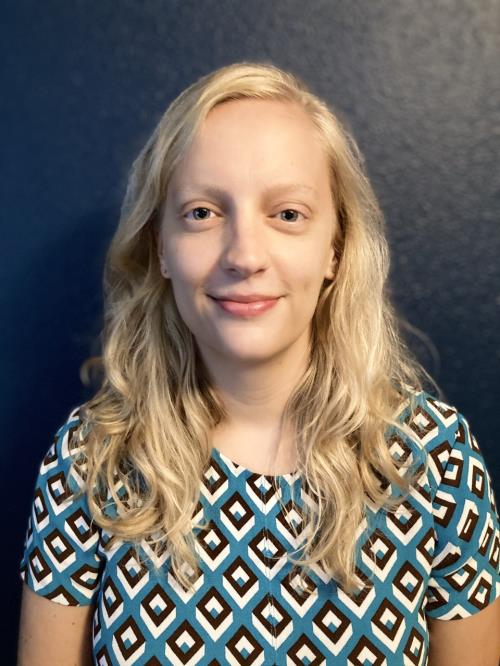
Caroline Stratton is an Assistant Professor in the School of Information at Florida State University. Her research addresses how organizations may effectively design and implement technology interventions for social good. Her recent and ongoing work in ICT4D examines government, non-profit, and social entrepreneurial innovation efforts in Latin America, particularly in the education sector. She holds a PhD from the University of Texas at Austin and is a former nuclear engineer.
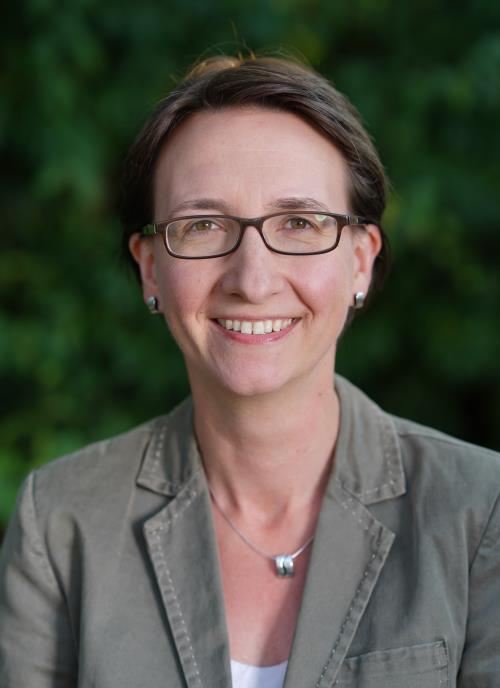
Prof. Dorothea Kleine is Co-director of the Institute for Global Sustainable Development at the University of Sheffield, where she leads the Digital Technologies, Data and Innovation (DDI) group. Her research investigates sustainable human development, global justice, and the role of ICTs in making progress towards these aims. Themes such as gender equality, participation, justice and choice run strongly through her work.
She has published widely and is particularly well-known for her theoretical work on applying the capabilities approach to digital development, as laid out in Technologies of Choice (MIT Press). Dorothea Kleine has researched with partners in Africa and Latin America, as well as advising UNICEF, UNEP, DFID, GIZ, IDRC, Nokia, GSMA and Oxfam.
She holds a PhD from the London School of Economics. Before joining Sheffield, she worked at Cambridge and Bonn universities and was director of the ICT4D Centre, Royal Holloway, University of London. Recently she co-facilitated the international participatory process of agreeing on minimum ethical standards in ICT4D/ICTD research (ictdethics.wordpress.com). Dorothea Kleine is a co-director of the GCRF GeDIA Network (gedia-network.org) which unites women changemakers and their male allies for more gender-just digital futures.
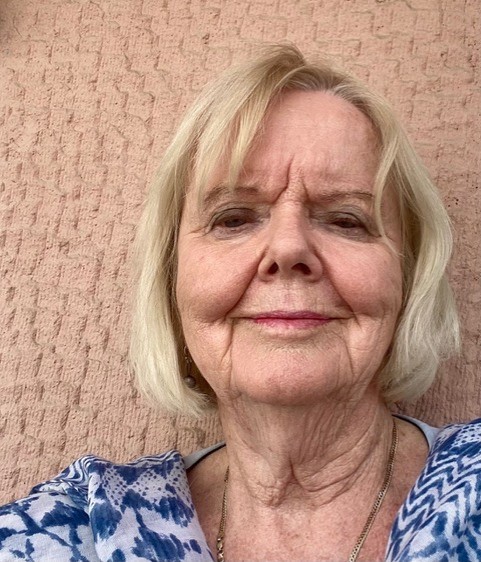
Dr. Elizabeth Mestheneos, a UK trained sociologist and academic, moved to Greece in 1983, becoming an independent social researcher in 1988. She has published over 50 articles/ chapters on subjects including ageing e.g. family care, employment, new technology (see Research Gate). She co-founded in 2005 and was MD for 10 years of the NGO “50+ Hellas” (www.50plus.gr). From 2003 she served on the Board of AGE-Platform Europe, and its elected President 2008-2011 (www.age-platform.eu). She is active as advisor, juror, and evaluator on EU funded projects concerning new technologies, accessibility, and the human rights of older people. She is Emeritus Board member of the Hellenic Association for Gerontology and Geriatrics and supports the Greek e-library of Gerontology and Geriatrics. She served on the Board of the International Federation on Ageing 2008-2014.
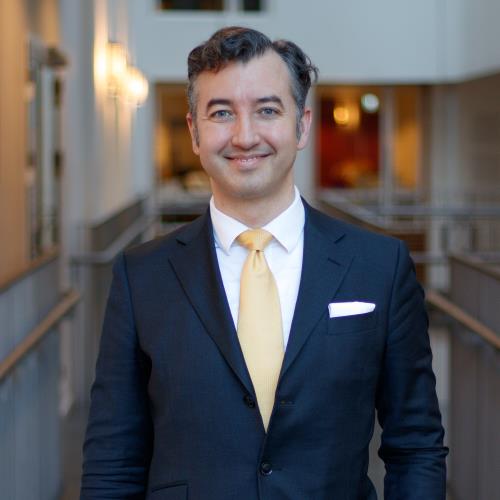
Anthony is an Associate Professor of Universal Design of ICT at the Department of Computer Science at Oslo Metropolitan University (OsloMet). He maintains several international appointments including at the Harvard Law School Project on Disability at Harvard Law School, the Burton Blatt Institute at Syracuse University, the Department of Science and Informatics at the University of Eduardo Mondlane, and the Department of Education at Roma Tre University. Anthony’s work focuses on technology policy and practice. He is an internationally recognized expert in universal design of information and communication technology (ICT). He leads several large-scale research and innovation projects based in over 27 countries.
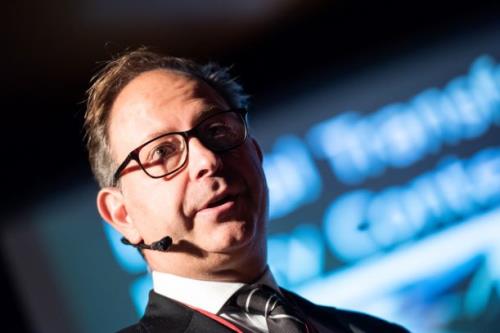
Gianluca Misuraca is founder and Vice President for International Relations and Technology Diplomacy of Inspiring Futures (IF), a global advisory consultancy in Strategic Foresight, Social Innovation and Digital Governance headquarter in Lausanne and Sevile. He is also an advisor to several International Organizations and development institutions worldwide. Among his key assignments he is currently leading the “International Outreach for human-centric Artificial Intelligence” (InTouchAI.eu) initiative funded by the European Commission’s External Action Service for Foreign Policy Instruments. As part of his academic roles, Gianluca is the Executive Director of the Master in Artificial Intelligence in public services (AI4GOV) led by the Universidad Politécnica de Madrid, a Senior Research Associate at the Department of Design of Politecnico di Milano and a Research Fellow at the Department of eGovernance and Administration of Danube University Krems in Austria. Furthermore, he is a Special Advisor on Democracy in the Digital Age for Re-Imagine Europa (RIE)
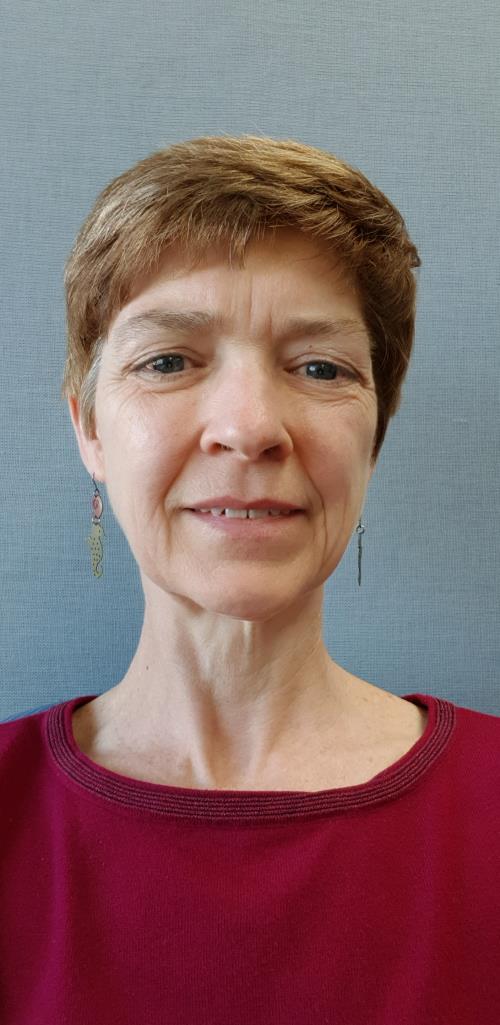
Heather Heywood is currently Head of the ITU Information Management Service, which encompasses library, archives, and information management. She has more than 20 years of experience working in ITU as archivist and information manager, providing access to ITU’s rich documentary heritage. She holds a Master of Archival Studies from the University of British Columbia, Canada.
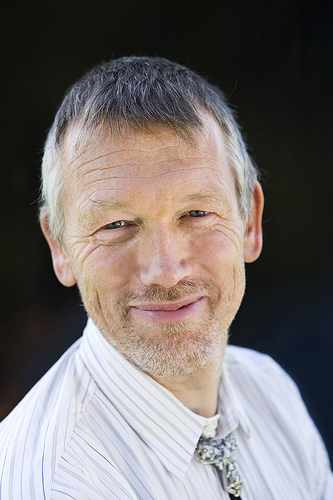
Josef Noll is professor at the University of Oslo (UiO) and Secretary General of the Basic Internet Foundation. His focus is on communication and IoT-/Information security, and especially digitalisation based on free access to information for all. Josef Noll was previously Senior Advisor and group leader at Telenor R&I where his group developed 3G/UMTS. He has also worked at the European Space Agency and SIEMENS. His focus is on societal security, with the specific focus on an inclusive digital inclusion for every human. His vision of "Internet Lite" addresses directly the Sustainable Development Goals (SDGs) 9.C and 16.10 of the Agenda 2030. His focus is on how Internet Lite catalysts sustainable development, especially in the areas of health (SDG 3), Education (SDG 4), empowerment (SDG 5) and decent work (SDG 8). His team and collaborators contribute to school connectivity, aiming at 5000 schools and 3.4 million students to be connected by end of 2023.
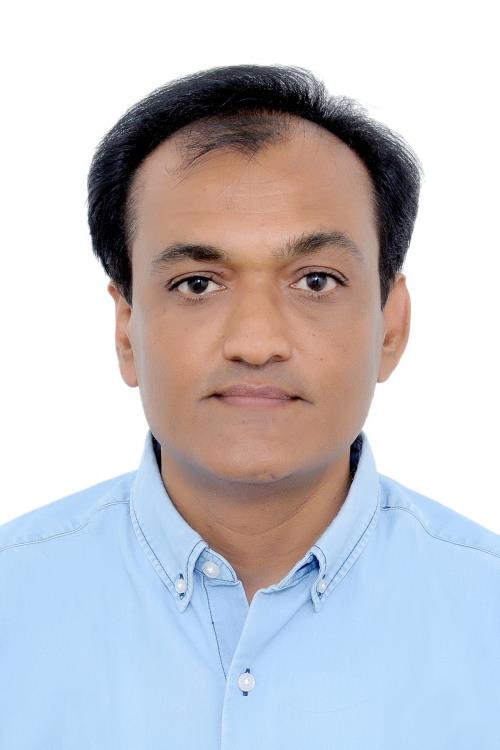
Dr Kirankumar Trivedi is a Professor at Electronics & Communication Engineering Department of Vishwakarma Government Engineering College, Ahmedabad, affiliated with Gujarat Technological University, under the Commissionerate of Technical Education, Education Department of Government of Gujarat, India. Dr. Kiran Trivedi is B.E. (Electronics & Communication), M.E. (Communication Systems Engineering) and holds Ph.D. He is having 24 years of experience in teaching UG and PG students at the university level. Dr. Trivedi has organized various workshops on wireless and mobile technologies in India and delivered various expert talks on Artificial Intelligence, Edge Computing and Deep Learning. He is involved in development of AI enabled embedded device-based application for health and ICT. He has been invited for talks at UNESCO- France, SEE 2010-Netherlands, ICTP-Italy, Symbain-UK and Nepal. He has contributed for a free book on m-learning jointly published by ICTP Italy and UNESCO. He had been invited to demonstrate Emergency Messenger System to Honourable President of India Dr. Abdul Kalam.
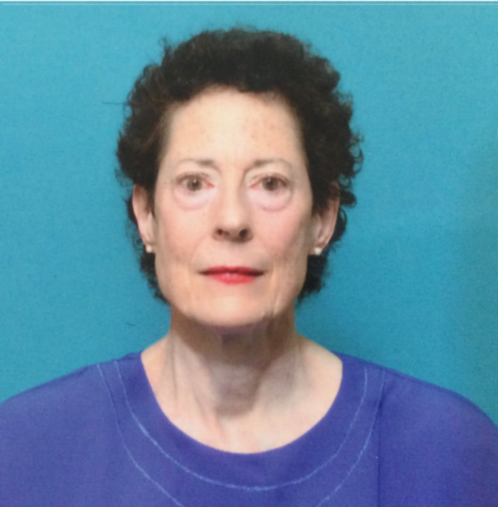
Dr. Lynn Thiesmeyer specializes in Upper Mekong regional and rural development, including Myanmar, Thailand, Laos, and China. She has been Professor of Environmental Information at Keio University, Japan, since 1995. She has worked as an advisor and co-researcher with APEC (the Asia-Pacific Economic Commission), with the United Nations Development Programme and UNESCO, the World Bank Gateway for Gender and Development, and with the MEDICI Framework of the European Commission, and was Research Advisor to the Mekong Institute of Thailand. From 2001 she has been a speaker at the W3C, and since 2016 at the WSIS. She has also been a lecturer for the United Nations Global Seminars in Japan and at the Graduate Program of Health Social Sciences of Mahidol University of Thailand. Her publications include Human Insecurity in East Asia (ed., 2009), Informal and Illegal Movement in the Upper Greater Mekong Subregion (2010), articles on environmental policy within ASEAN, and book chapters on security, space, and on economic and socio-ecological impacts of large-scale development projects in rural areas of the Upper Mekong. Recent work includes articles on the use of remote sensing data to demonstrate climate change effects on forest fires; and on the effects of Myanmar’s transition on the region’s border economies and digital connectivity, and the paramount importance of maintaining analog-digital hybridity for survival in large-scale migration, medical emergencies, and human-caused disasters.
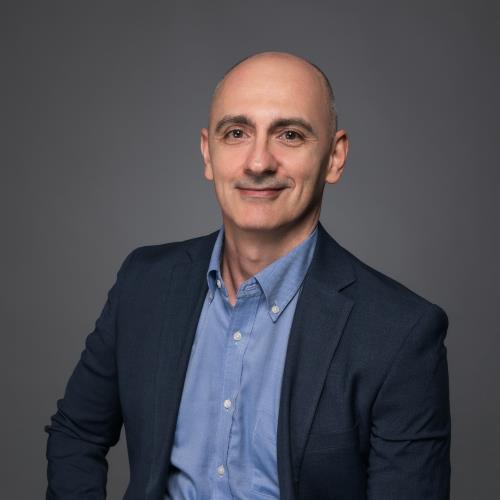
Marco Pellitteri is a media sociologist and associate professor of media and communication at Xi’an Jiaotong-Liverpool University in Suzhou (China). He is co-founder of the journal Mutual Images. He was a researcher at Kobe University (2013-18) and will be visiting scholar at Ca’ Foscari University (summer 2022). Among his latest publications, the books I manga (Carocci 2021) and Japanese Animation in Asia (editor, with H. Wong, Routledge 2021). Academic profile and publications: Xjtlu.edu.cn/en/departments/academic-departments/media-and-communication/staff/marco-pellitteri. Contact: Marco.Pellitteri@xjtlu.edu.cn.
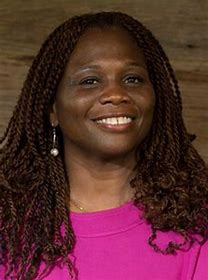
Michelle J. Johnson, Ph.D., is currently Associate professor of Physical Medicine and Rehabilitation at the University of Pennsylvania. She has secondary appointments as an Associate professor in Bioengineering and in Mechanical Engineering and Applied Mechanics. She has a Bachelor of Science in Mechanical Engineering and Applied Mechanics from the University of Pennsylvania and a PhD in Mechanical Engineering, with an emphasis in mechatronics, robotics, and design, from Stanford University. She completed a NSF-NATO post-doctoral fellowship at the Advanced Robotics Technology and Systems Laboratory at the Scuola Superiore Sant’Anna in Italy. She directs the Rehabilitation Robotic Research and Design Laboratory located at the Pennsylvania Institute of Rehabilitation Medicine at the University of Pennsylvania, School of Medicine. The lab is also affiliated with the General Robotics Automation Sensing Perception (GRASP) Lab. Dr. Johnson’s lab specializes in the design, development, and therapeutic use of novel, affordable, intelligent robotic assistants for rehabilitation in high and low-resource environments with an emphasis on using robotics and sensors to quantify upper limb motor function in adults and children with brain injury or at risk for brain injury. Dr. Johnson has spent over twenty years applying technology solutions to aid in the understanding of disability and impairment after brain injury. She is currently a Fulbright Scholar for 2020-2022 to Botswana and an IEEE Engineering in Biology and Medicine Society Distinguished Lecturer 2021-2022.
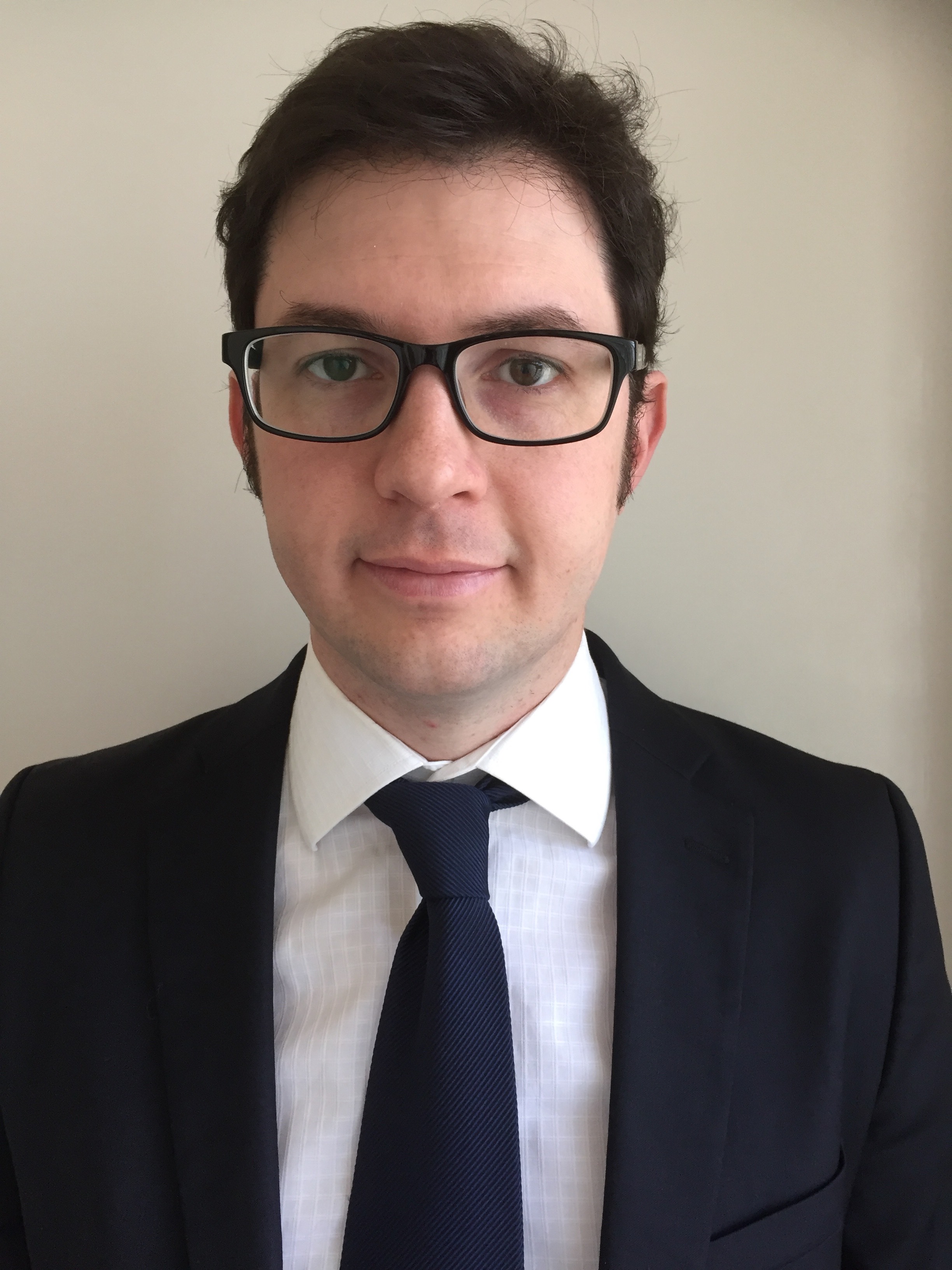
Dr. Paul Reilly is Senior Lecturer in Communications, Media and Democracy in the School of Social & Political Sciences at the University of Glasgow. He is a media and communication researcher with a specific interest in how social media is used to frame contentious political issues within divided societies such as Northern Ireland. Dr. Reilly has written two books on the role of the internet in conflict transformation in Northern Ireland (Framing the Troubles Online: Northern Irish Groups and Website Strategy and Digital Contention in a divided society: social media, parades and protest in Northern Ireland). His work has also been published in a number of journals including First Monday, Information, Communication & Society, Journalism, New Media & Society, and Policy & Internet. Recently completed research projects include a British Academy funded study of YouTube footage of the union flag protests in Northern Ireland, a study of how social media is used by first responders during crisis situations funded by the EU 7th Framework Programme for Research (FP7) and a Horizon 2020 funded study of how social media can be used to build community resilience against disasters. He is a regular contributor to the LSE Democratic Audit blog and has appeared on media outlets including BBC News Channel, BBC News Arabic, BBC Radio Leicester, BBC Radio Sheffield and the Canadian Broadcasting Corporation. He has been an invited keynote speaker at events organised by the European Police College (CEPOL) and the Royal United Services Institute.
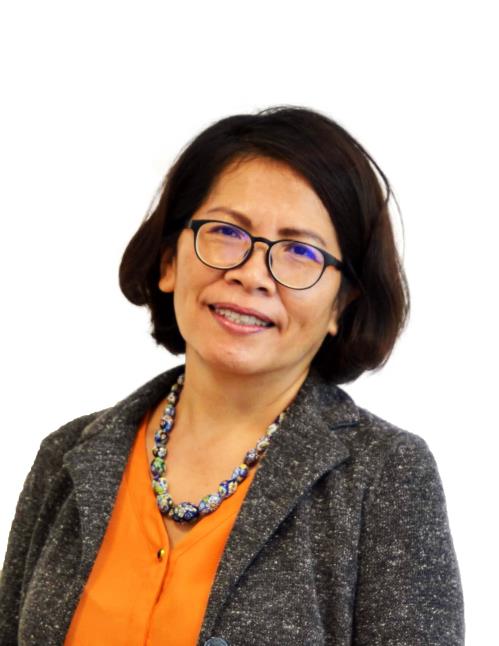
Poline Bala obtained a PhD in Social Anthropology from University of Cambridge, UK. She is now the Director of Institute Borneo Studies, an Associate Professor at the Faculty of Social Sciences and Humanities, a Senior Research Fellow at the Institute of Social Informatics and Technological Innovation at University Malaysia Sarawak (UNIMAS). Her area of interest and research includes examining the impacts of political boundary lines on the formation of national identities at border areas. Over the past two decades, Poline also has formed a research interest in two interrelated fields: society-technology relationships and development-technology relationships. This especially relates with how society and social values shape the way in which technology, specifically Information Communication Technologies (ICT), affects our lives, the roles of ICT on development activities, the social change that is connected to the application and use of ICT and the outcome of the development activities, and how they occur. This interest stems mainly from her roles as one of the pioneers of the world-renowned eBario initiative in the Kelabit Higlands that sought to explore the socioeconomic potentials of the new information communication technologies amongst rural and remote communities. In 2006 - 2010 she was part of a research team which was instrumental in the national roll out programme of Rural ICT to remote places in Malaysia. In 2012, Poline and her team was engaged by the Economic Planning Unit at the Prime Minister’s Department to introduce and implement Telecentre Programme amongst Orang Asli West Malaysia (TPOA). Quite recently, Poline is leading a team to examine the relations between ethnodevelopment, Information Communication Technologies and Climate Change in relation to the island of Borneo. All these engagements boil down to Poline’s keen interest in societal issues surrounding “small people” at the margins of technological advancement and innovation.
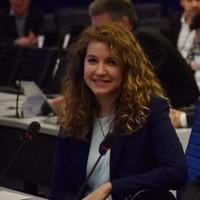
Regina is an Academia Relations officer at the International Telecommunication Union. She contributes to the development of outreach strategies and promotes a harmonized approach to strengthen engagement and recruitment of universities and research establishments across the organization. She promotes the latest development of science and technology activities and build cooperation with academic and scientific institutions in specific area of interest to ITU. She has more than 13 years of experience in the field of international development and telecommunications. Prior taking a role as Academia relations officer, she has been working as a Policy Analyst for multiple years in the Corporate Strategy Division at ITU. In 2016, she received an ITU Performance Award as a recognition of achievements and also contributions to the fundraising for the project of ITU’s 150th Anniversary. She was also a member in the Evaluating Committee for the Equals Tech Awards in 2018. She holds BA in International Relations and MBA. She speaks English, French, Russian, Spanish and German.
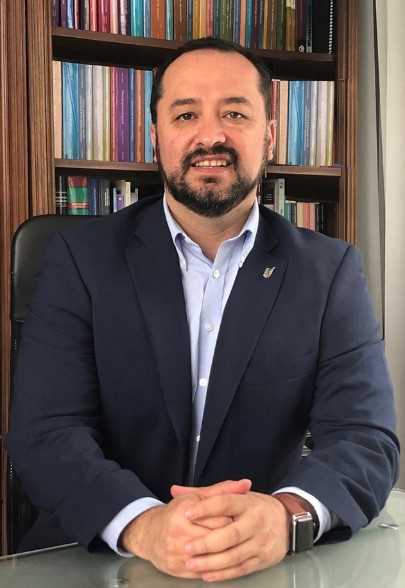
Prof. Ricardo I. Robles Pelayo is a university Professor and Lecturer in many universities and tutor in master's degrees in the University Anahuac On-Line.He got two master's degrees: LLM in Commercial Law from the University of Birmingham England, and a master's degree in Law with a diploma in Corporate Law from the Technological University of Mexico. He is currently studying for a Ph.D. in education learning and knowledge technologies (LKT) in virtual environments. In the professional field, he has worked in different areas and positions in the public and private sector as a legal advisor in the corporate area and in everything related to international contracts.He received the following awards:The first one was granted by the Government of the Federal District Mexico in July 2012. “In the merit of his outstanding academic and professional career”. The second one was granted by the Mexican Institute of Victimology in October 2013. "2013 National Award for Academic, Teaching and Professional Merit".

Reza is a PhD student in economics at Department of Economics, KENMS, International Islamic University Malaysia (IIUM), Malaysia. His research and writing are mainly rooted within socioeconomic studies in Malaysia and Indonesia and crosses the fields of economics, rural sociology, agriculture development and ICT/digital for development studies. His current research is on the issues of digital divide and technological embeddedness among urban households in Malaysia.
His latest research paper, Covid-19 Pandemic and Addressing Digital Divide in Malaysia (2021, Journal of Information Systems and Digital Technologies, 3(2), 29–49. Retrieved from: https://journals.iium.edu.my/kict/index.php/jisdt/article/view/205). Some article and research papers can be read on his ResearchGate website: https://www.researchgate.net/profile/Sayed-Mohammad-Reza-Yamani-Sayed-Umar
His study and research experiences has brought him to travel in few countries in Africa, Europe and Asia; Tanzania, Uganda, The Netherlands, UK, Germany, France, Belgium, Singapore, Malaysia, Vietnam, The Philippines and Thailand.

Shadreck Ndinde is an Information professional with a passion for Information Technology application to Industry and communication services as well as assisting various research projects. Shadreck Ndinde is a Lecturer in the Department of Library and Information Science at NUST, Zimbabwe. He has worked for Ministry of education sports and culture, Public Service Commission, Great Zimbabwe University Library and served the Zimbabwean community in Masvingo in rural library development. He is an Executive member of Zimbabwe Library Association (ZimLA). Shadreck has been a member since joining the Association in 1998 as a student. Shadreck is a facilitator in Digital libraries content management and Open access Database. Shadreck has written and published on the role of the information on community development in the following articles: The Role of Community-Based Information Centers in Development: Lessons for Rural Zimbabwe; The right to information: library services and disability at tertiary and university libraries in Masvingo Urban in Zimbabwe and The role of academic libraries in creating awareness for Zimbabwe agenda for sustainable socio-economic transformation (Zim asset) to Zimbabwean people. He is a thinking performer with rapid adaptability to new environments and problem solving with proven record in setting and meeting targets. Shadreck is a PhD student with UKZN, South Africa. His research interests are on: Performance evaluation, service quality and user satisfaction in Libraries.
shadreckndinde@gmail.com OR Shadreck.ndinde@nust.ac.zw
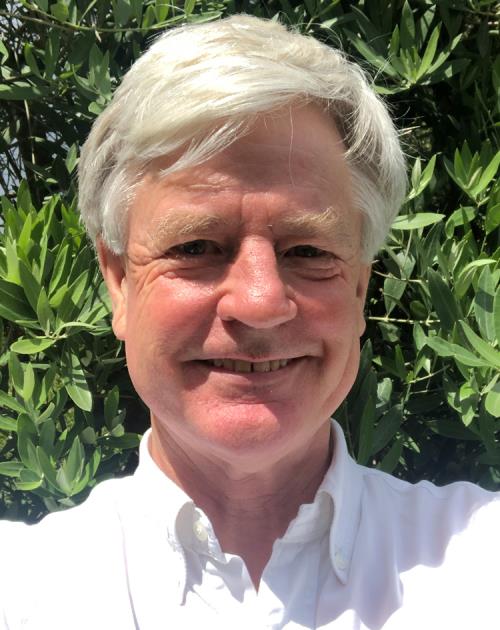
Tim Unwin CMG is Chairholder of the UNESCO Chair in ICT4D and Emeritus Professor of Geography at Royal Holloway, University of London. He was Secretary General of the Commonwealth Telecommunications Organisation from 2011-2015, was Chair of the Commonwealth Scholarship Commission from 2009-2014, and over the last decade has worked closely with UN agencies such as the ITU, UNESCO and UNICEF. His influential edited book Information and Communication Technologies for Development, was published by Cambridge University Press in 2009, and his latest book Reclaiming ICT4D was published by Oxford University Press in 2017. His research focuses on the inequalities caused by the use of digital technologies and how the poorest and most marginalised can be empowered through them. In 2021 he launched the Digital-Environment System Coalition (DESC) to change global understanding of the impact of digital technologies on the global environment. He is an inspirational speaker, highly effective leader, and internationally respected author, with 16 books and more than 250 other publications to his credit, and in 2016 was appointed a Companion of the Most Distinguished Order of St. Michael and St George (CMG) in the Queen’s 90th Birthday Honours list for his services to the Commonwealth.

Vivian Welch is editor in chief and acting CEO of the Campbell Collaboration, Director of the Methods Centre at the Bruyère Research Institute, and Associate Professor at University of Ottawa School of Epidemiology and Public Health. Her research interests include methods and reporting guidelines for synthesizing evidence on health equity. She is also an avid cross-country skier, runner and mother of four.
Selected publications (trainees underlined)
1. Welch, V., Mathew, C. M., Babelmorad, P., et al. (2021). Health, social care and technological interventions to improve functional ability of older adults living at home: An evidence and gap map. Campbell Systematic Reviews, 17, e1175. https://doi.org/10.1002/cl2.1175
2. Welch VA, Ghogomu E, Hossain A, Riddle A, Gaffey M, Arora P, et al. Mass deworming for improving health and cognition of children in endemic helminth areas: A systematic review and individual participant data network meta-analysis. Campbell Syst Rev 2019;15(4).
3. Welch V, Doull M, Yoganathan M, Jull J, Boscoe M, Coen SE, Marshall Z, Pardo JP, Pederson A, Petkovic J, Puil L, Quinlan L, Shea B, Rader T, Runnels V, Tudiver S. Reporting of sex and gender in randomized controlled trials in Canada: a cross-sectional methods study. Res Integr Peer Rev. 2017 Sep 1;2:15. doi: 10.1186/s41073-017-0039-6. eCollection 2017.
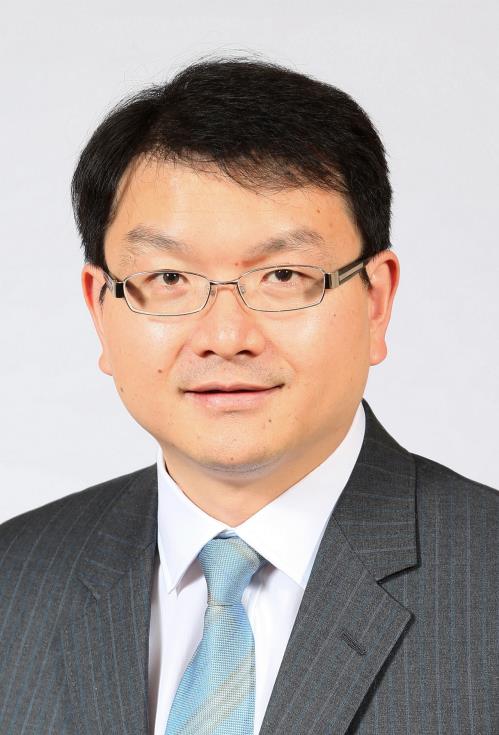
Prof. Yang Yang is the Chief Scientist of IoT at Terminus Group and a full professor at ShanghaiTech University, China. His research interests include multi-tier computing networks, 5G/6G systems, AIoT technologies and applications, and advanced wireless testbeds. He has published more than 300 papers and filed more than 80 technical patents in these research areas. Yang is a fellow of the IEEE.
-
 C1. The role of governments and all stakeholders in the promotion of ICTs for development
C1. The role of governments and all stakeholders in the promotion of ICTs for development
-
 C3. Access to information and knowledge
C3. Access to information and knowledge
-
 C4. Capacity building
C4. Capacity building
-
 C7. ICT applications: benefits in all aspects of life — E-learning
C7. ICT applications: benefits in all aspects of life — E-learning
-
 C11. International and regional cooperation
C11. International and regional cooperation
This session will establish the groundwork needed for improving collaboration and networking, cooperation needed for progress on the WSIS Action Lines.
-
 Goal 1: End poverty in all its forms everywhere
Goal 1: End poverty in all its forms everywhere
-
 Goal 2: End hunger, achieve food security and improved nutrition and promote sustainable agriculture
Goal 2: End hunger, achieve food security and improved nutrition and promote sustainable agriculture
-
 Goal 3: Ensure healthy lives and promote well-being for all
Goal 3: Ensure healthy lives and promote well-being for all
-
 Goal 4: Ensure inclusive and equitable quality education and promote lifelong learning opportunities for all
Goal 4: Ensure inclusive and equitable quality education and promote lifelong learning opportunities for all
-
 Goal 5: Achieve gender equality and empower all women and girls
Goal 5: Achieve gender equality and empower all women and girls
-
 Goal 6: Ensure access to water and sanitation for all
Goal 6: Ensure access to water and sanitation for all
-
 Goal 7: Ensure access to affordable, reliable, sustainable and modern energy for all
Goal 7: Ensure access to affordable, reliable, sustainable and modern energy for all
-
 Goal 8: Promote inclusive and sustainable economic growth, employment and decent work for all
Goal 8: Promote inclusive and sustainable economic growth, employment and decent work for all
-
 Goal 9: Build resilient infrastructure, promote sustainable industrialization and foster innovation
Goal 9: Build resilient infrastructure, promote sustainable industrialization and foster innovation
-
 Goal 10: Reduce inequality within and among countries
Goal 10: Reduce inequality within and among countries
-
 Goal 11: Make cities inclusive, safe, resilient and sustainable
Goal 11: Make cities inclusive, safe, resilient and sustainable
-
 Goal 12: Ensure sustainable consumption and production patterns
Goal 12: Ensure sustainable consumption and production patterns
-
 Goal 13: Take urgent action to combat climate change and its impacts
Goal 13: Take urgent action to combat climate change and its impacts
-
 Goal 14: Conserve and sustainably use the oceans, seas and marine resources
Goal 14: Conserve and sustainably use the oceans, seas and marine resources
-
 Goal 15: Sustainably manage forests, combat desertification, halt and reverse land degradation, halt biodiversity loss
Goal 15: Sustainably manage forests, combat desertification, halt and reverse land degradation, halt biodiversity loss
-
 Goal 16: Promote just, peaceful and inclusive societies
Goal 16: Promote just, peaceful and inclusive societies
-
 Goal 17: Revitalize the global partnership for sustainable development
Goal 17: Revitalize the global partnership for sustainable development
This session will establish the groundwork needed for improving collaboration and networking, cooperation needed for progress on the SDGs and the Sustainable Development Process.